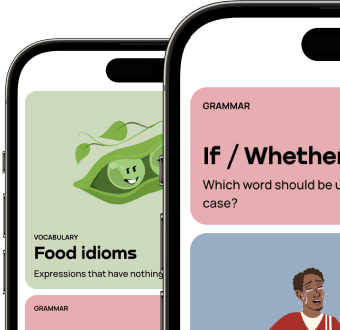Le Passé Récent – Recent Past Tense in French
Contents
Key takeaways
- The passé récent expresses actions that just happened.
- It’s formed with venir (present tense) + de + infinitive.
- It translates to English “just did” (I just ate, she just left).
- It’s used in everyday spoken French, not in formal writing.
- It’s one of the simplest ways to talk about the immediate past.
What Is the Passé Récent?
The passé récent is the French tense for talking about very recent actions. It works like the English “just + verb.” For example: Je viens de manger → I just ate. Unlike literary tenses, this one is extremely common in everyday speech, so learners will hear it often.
How to Form the Passé Récent
The formula is straightforward:
Subject + venir (present tense) + de + infinitive
Examples:
- Je viens de manger. → I just ate.
- Nous venons de finir nos devoirs. → We just finished our homework.
When to Use the Passé Récent
You’ll use the passé récent in three main cases:
- To describe something that just happened:
- Ils viennent d’arriver. → They just arrived.
- To emphasize immediacy:
- Elle vient de partir. → She just left.
- In informal speech, not in literature or formal writing.
Passé Récent vs. Passé Composé
While both tenses talk about the past, the nuance is different. The passé récent refers to something that happened just moments ago, whereas the passé composé describes any completed past action.
- Je viens de manger. → I just ate (very recent).
- J’ai mangé. → I ate (completed past).
For a deeper comparison, this overview of the French recent past tense explains pronunciation tips and highlights why French speakers often prefer passé composé outside of immediate contexts.
1
Common Mistakes with the Passé Récent
- Forgetting to conjugate venir
- ❌ Je venir de manger.
- ✅ Je viens de manger.
- Mixing it with passé composé
- ❌ Je suis venu de manger.
- ✅ Je viens de manger.
- Omitting “de”
- ❌ Je viens manger.
- ✅ Je viens de manger.
Exercises: Practice the Passé Récent
- Fill in the blanks:
- Je ________ de finir mes devoirs.
- Nous ________ de voir un film.
- Elles ________ de rentrer à la maison.
- Translate into French:
- I just called my friend.
- They just arrived.
- She just left the office.
- Correct the mistakes:
- Tu viens manger un sandwich. (intended: you just ate a sandwich) → ________
- Nous vient de finir. → ________
Answers
- viens, venons, viennent
- Je viens d’appeler mon ami | Ils viennent d’arriver | Elle vient de quitter le bureau
- Tu viens de manger un sandwich | Nous venons de finir
Tips for Mastering the Passé Récent
- Focus on venir in the present tense — it’s the backbone of this construction.
- Use it for real-life situations: Je viens de lire un article, Tu viens de poser une question.
- Compare it with passé composé to feel the difference in time reference.
This Acupoffrench overview of the recent past suggests practicing with dialogue, while the Language Atlas explanation of when to use passé récent shows how to apply it across different situations.
If you want to see where the tense fits in the bigger picture, check overview of French verb tenses. For practical strategies, see our article on learning French effectively. And if you’re planning your learning journey, here’s how long it may take to learn French fluently.
Summary
The passé récent is one of the easiest tenses in French: venir (present) + de + infinitive. It describes what just happened, making it perfect for informal conversations. While the passé composé is used for most completed past actions, the passé récent lets you sound more natural when something happened only moments ago.
To master it, practice short sentences daily and use it in conversation while you learn French anytime, anywhere. Over time, you’ll instinctively know when to pick passé récent over other past tenses.

Comments